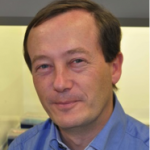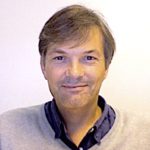Lien vers Pubmed [PMID] – 23175562
Lien DOI – 10.1093/cid/cis935
Clin Infect Dis 2013 Mar; 56(6): 861-9
Immunocompromised patients represent an increasing group of travelers, for business, tourism, and visiting friends and relatives. Those with severe cellular immunodeficiency (advanced human immunodeficiency virus infection and transplant recipients) display the highest risk of fungal infections. International travel is less risky in most other types of immunodeficiency (except those with neutropenia). A systematic visit in a travel clinic for immunocompromised patients traveling to the tropics ensures that the specific risks of acquiring fungal infections (and others) are understood. When immunocompromised hosts return to their area of residence, a nonbacteriologically documented, potentially severe, febrile pneumonia, with or without dissemination signs (skin lesions, cytopenia) should alert for travel-acquired fungal infection, even years after return. Localized subcutaneous nodule may be also ascribed to fungal infection. Finally, infectious diseases physicians should be aware of major clinical patterns of travel-acquired fungal infection, as well as the fungi involved, and risk factors according to the geographical area visited.





